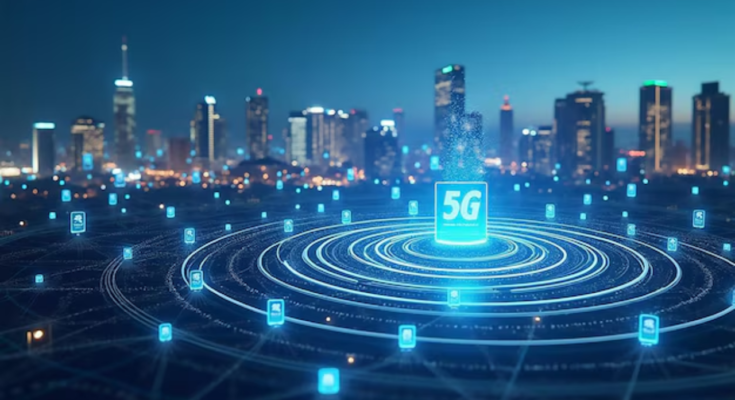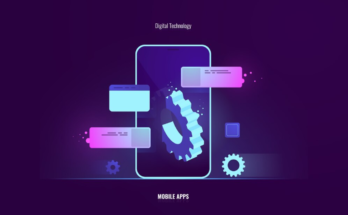The Impact of 5G on Mobile App Development. As the world continues to embrace digital transformation, the advent of 5G technology is reshaping industries across the board, including mobile app development. With promises of lightning-fast internet speeds, ultra-low latency, and enhanced network capabilities, 5G is poised to revolutionize the way mobile apps are developed, deployed, and experienced. In this article, we’ll explore the profound impact of 5G on mobile app development, how developers can harness its full potential, and what changes we can expect in the future of mobile apps.
Understanding 5G and Its Capabilities
Before diving into its impact on mobile app development, it’s essential to understand what 5G technology brings to the table. Compared to its predecessor, 4G LTE, 5G offers:
- Increased Speed: 5G is expected to be 100 times faster than 4G, with speeds reaching up to 10 Gbps. This increased speed opens up opportunities for faster downloads, seamless video streaming, and high-quality real-time experiences.
- Low Latency: Latency refers to the delay in data transmission, and 5G significantly reduces this lag. With latencies as low as 1 millisecond, real-time applications like AR/VR, gaming, and live streaming will function with near-instant response times.
- Improved Connectivity: 5G supports a much larger number of connected devices per square kilometer, allowing developers to build apps for IoT devices, smart cities, and more robust networking applications.
Impact on Mobile App Development
1. Enhanced User Experiences
5G will allow developers to create mobile apps that offer richer and more immersive user experiences. With high-speed connectivity and low latency, applications that previously suffered from performance bottlenecks due to poor network conditions can now function smoothly.
For example, high-definition (HD) video streaming apps, augmented reality (AR) applications, and virtual reality (VR) experiences will see massive improvements. This new technology opens up possibilities for seamless video conferencing, 4K and even 8K video streaming, and more interactive mobile experiences. Developers will no longer need to rely on compressed media files or optimized lower-quality streams to account for connectivity limitations.
2. Advancement in AR and VR Applications
The impact of 5G on mobile app development is particularly profound in the realm of AR and VR. With 5G’s reduced latency and increased bandwidth, AR/VR apps can now deliver smooth, real-time rendering, allowing users to experience these technologies as they were meant to be.
For example, apps like Pokémon GO can now implement even more complex and dynamic AR interactions. Medical training apps using VR simulations will be able to provide real-time interaction and feedback, enhancing the learning experience.
// Example: Basic AR app initialization with 5G-ready framework like ARCore (simplified)
import { AR } from 'arcore';
const arExperience = new AR({
model: 'path/to/3D-model.glb',
environment: 'dynamic',
});
arExperience.start();3. IoT Integration and Smart Applications
One of the most significant impacts of 5G on mobile app development will be its ability to power the Internet of Things (IoT). As 5G can connect a vast number of devices simultaneously, mobile apps will increasingly become the hub for controlling IoT ecosystems—whether it’s smart home devices, wearables, or connected vehicles.
For instance, developers can build applications that control home security systems, manage smart thermostats, or track real-time data from health-monitoring devices. 5G’s connectivity improvements will ensure these applications can handle high data volumes without delay or disruption.
// Example: IoT device control using a mobile app (simplified)
const device = connectToDevice('SmartLightBulb');
device.turnOn();
device.changeColor('blue');4. Improved Cloud Integration
Cloud-based applications stand to benefit greatly from 5G. Apps that offload data processing to the cloud will now perform even better, given 5G’s enhanced upload and download speeds. This can revolutionize mobile gaming, productivity tools, and content creation apps where complex computations or high storage needs are offloaded to cloud servers.
With 5G, developers can build apps that rely on cloud processing for complex AI algorithms or for storing large datasets. Cloud gaming platforms like Google Stadia, for example, can now run smoothly on mobile devices with minimal latency.
5. Reduction in Hardware Dependency
Traditionally, mobile apps required powerful hardware to deliver high performance, leading to the development of apps optimized for specific devices. With 5G, however, apps can shift more processing and computation to the cloud. This means developers can focus less on hardware limitations and more on building feature-rich applications. Even lower-end devices can handle tasks like HD video editing or gaming by offloading these functions to the cloud.
Challenges in Mobile App Development with 5G
While 5G brings numerous benefits, it also presents some challenges for mobile app developers:
- Network Dependency: Since 5G isn’t yet available everywhere, developers need to consider varying levels of connectivity when building apps. Fallback mechanisms for users on 4G or slower networks must be considered.
- Security Concerns: With increased data transmission and the proliferation of IoT devices, security will become more critical. Developers must prioritize encryption, secure data storage, and robust authentication to safeguard user data.
- Battery Consumption: Enhanced network speeds and real-time data processing can potentially lead to faster battery drain. Optimizing app performance to manage power consumption will be crucial.
Conclusion
The impact of 5G on mobile app development is profound and far-reaching. From enabling richer AR/VR experiences to powering IoT ecosystems, 5G unlocks new possibilities for developers and users alike. As the rollout of 5G continues globally, mobile app developers must adapt to this new landscape by embracing cloud integration, optimizing for real-time experiences, and preparing for a future where connectivity is virtually limitless.
FAQs on 5G and Mobile App Development
1. How will 5G improve the performance of mobile apps?
5G offers increased speeds and low latency, which will enhance the performance of apps, especially those relying on real-time data like video streaming, gaming, and AR/VR.
2. Will 5G reduce the need for high-performance hardware in mobile devices?
Yes, 5G allows more data processing to be offloaded to the cloud, reducing the need for high-performance hardware on mobile devices.
3. How will 5G affect mobile gaming apps?
5G will greatly enhance mobile gaming by reducing latency, allowing for faster downloads and enabling cloud gaming platforms to run smoothly on mobile devices.
4. What are the security concerns with 5G apps?
With the increase in data transmission, apps will need to implement stronger encryption, secure data handling, and user authentication to protect against security threats.
5. Can all apps benefit from 5G?
While apps that rely on real-time data and high bandwidth (like video streaming and IoT control) will benefit the most, all apps can improve in performance and responsiveness with 5G connectivity.



